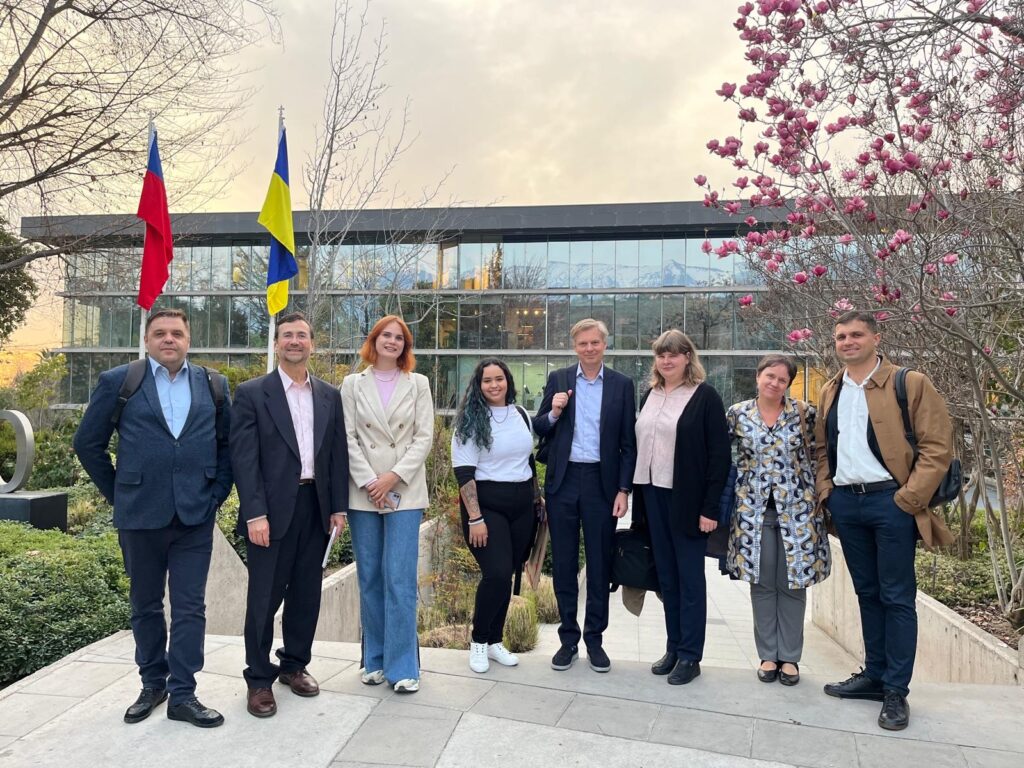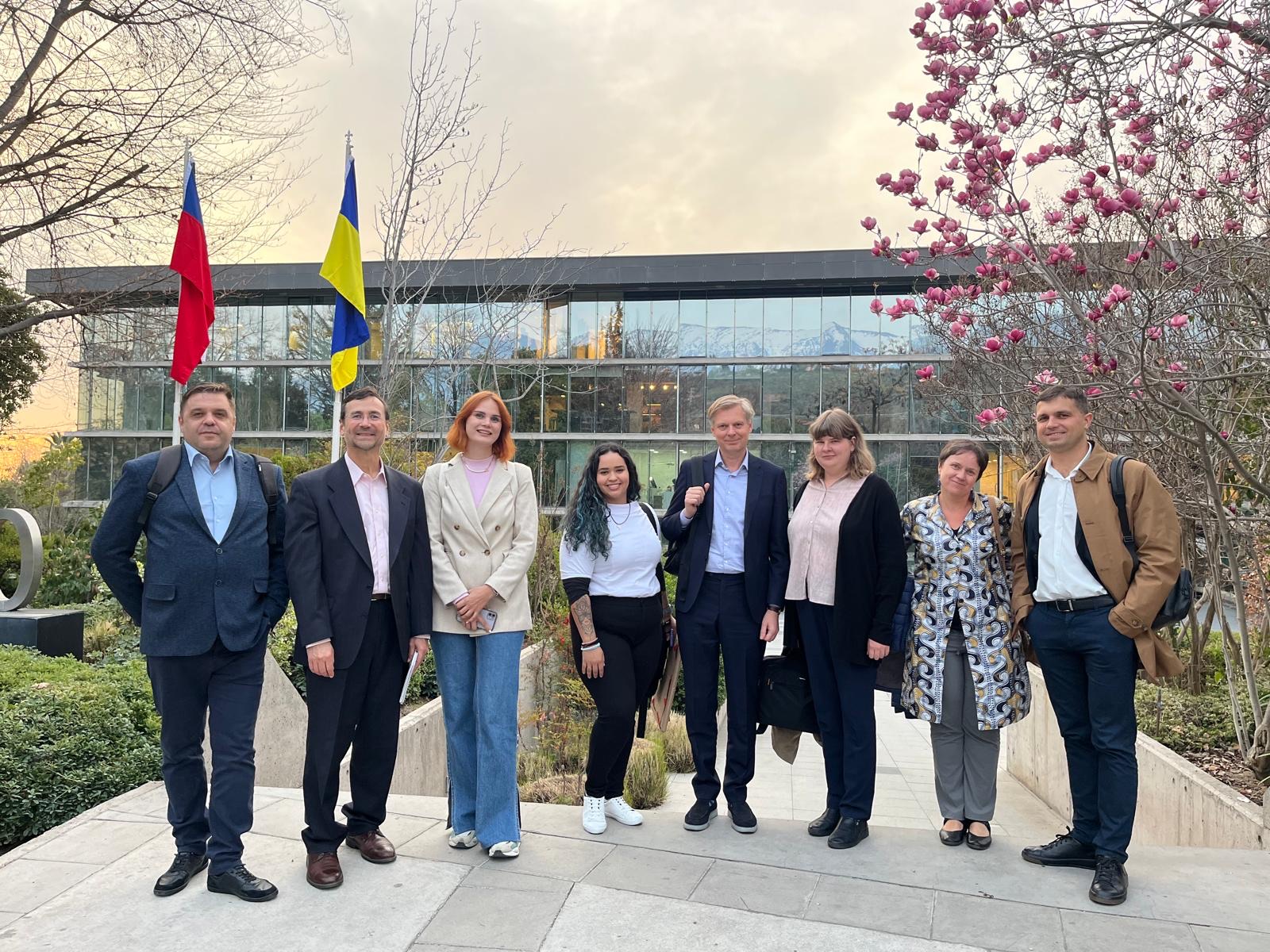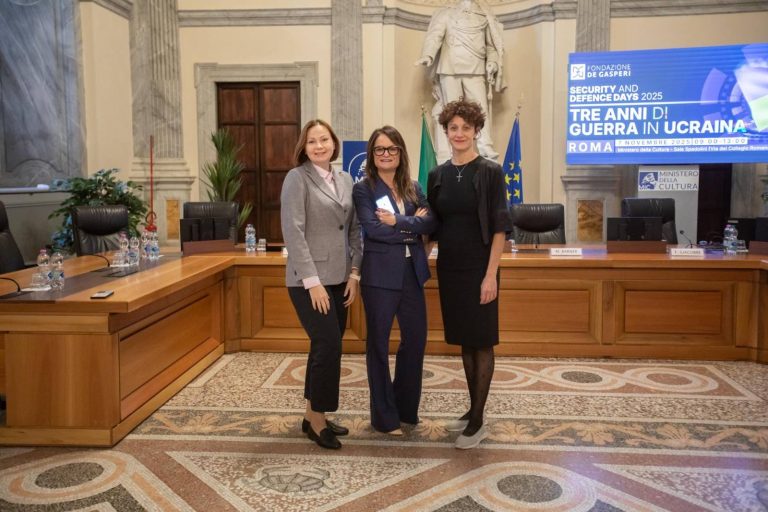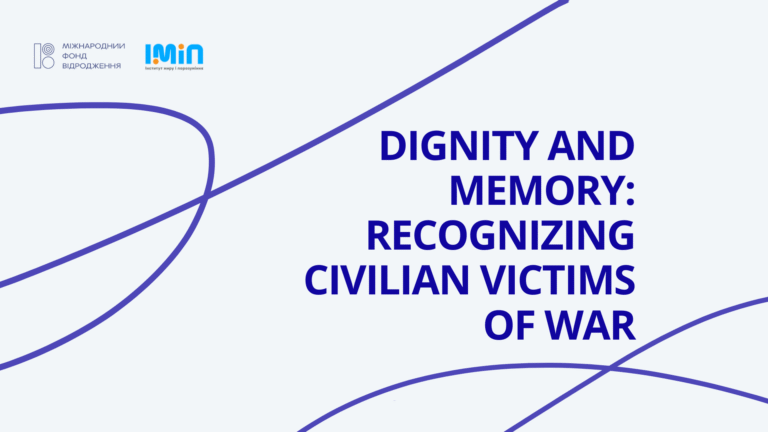
Daria Bielinska returned from Chile with valuable experience that can be useful in working with memory and justice in Ukraine. The Chilean approach to supporting victims and preserving histDaria Belinska returned from Chile with valuable experience that can be useful in working with memory and justice in Ukraine. The Chilean approach to supporting victims and preserving historical evidence is inspiring and shows how to overcome public indifference and restore justice. Below, learn more about how these lessons can help Ukraine on its path to truth in our Daria’s reflections
Memory as a Collective Duty: Lessons from Chile for Ukraine’s Path to Justice
One of the essential takeaways from memory work in Chile is the importance of publicly discussing and addressing conflicting narratives. When divergent memories are left unaddressed, they obstruct the development of demoralization-prevention policies and create gaps in memorialization efforts. For Ukraine, where the context of occupation and collaboration may stir complex and painful memories, neglecting these narratives could lead to frustration and feelings of exclusion among those affected, leaving an emotional void that demands acknowledgment.
By studying Chile’s approach—particularly its thoughtful integration of memory sites, collective ownership, and transformative reflection—we see a model for how memory work can address conflicting memories, contribute to recovery, and build resilience across generations.
According to the Fundamental Principles for Public Policy on Sites of Memory by the Mercosur Institute of Public Policy on Human Rights, memory sites are places tied to severe human rights violations—where they occurred, were resisted, or became associated with victims and communities as symbolic reminders. These sites aim to help society recover, rethink, and convey the traumas of the past to younger generations who did not experience them. They serve not only as historical archives but as touchpoints for reflection, enabling people to process and understand these events through a collective narrative.
However, simply “preserving” memory sites, like canning food, is insufficient. Instead, the goal is to engage actively with these spaces, fostering reflection and transformation. In my view, evoking fear or overwhelming empathy alone does not contribute to preventing future violations, nor does it necessarily serve victims and their families in the long term.
In Ukraine, with limited time, resources, or expertise, there is often a rush toward quick solutions—swift efforts to address painful memories, only to move on to the next tragic event. While reporting these spaces as “dealt with” may offer temporary closure, it risks missing the deeper value of memory work: creating a lasting, meaningful framework that resonates across generations. True memorialization requires more than a checklist; it demands a thoughtful approach to ensure these sites contribute to a deeper understanding and help prevent future tragedies.
At Villa Grimaldi in Chile, I was struck by how intentionally this space is designed to foster reflection among visitors, with the concept of recovery woven into every element. The Villa, along with the community of survivors and their families, remains open to public dialogue, even with those who hold conflicting narratives. According to the site’s representatives, the community does not impose a single perspective; instead, they aim to share personal stories, helping to build a comprehensive narrative of what happened in Chile during the dictatorship while preserving space for diverse experiences in all their complexity.
This site is a powerful example of meaningful survivor participation in memory work. It also highlights the creativity of the administration, who found ways to honor the memories of those who can no longer speak for themselves. Some elements of the Villa have been restored to remind visitors of the atrocities committed there, such as a torture chamber and a single prison cell (most of the site was demolished by officials attempting to erase evidence of the crimes). Yet, much of the Villa is dedicated to honoring the personal stories of victims and portraying the broader human rights violations under the Pinochet regime. At its heart, a central fountain gathers multiple streams into one, symbolizing unity in remembrance.
In Ukraine, countless communities (hromadas) have been affected by the invasion. Some, like Bakhmut and Volnovakha, have been fully destroyed, while others have endured occupation, torture sites, mass graves, and other symbolic wounds inflicted by Russian aggression. Here, collective ownership becomes essential. Entire communities are victims and survivors, and this collective ownership means involving community members in discussions on how they wish to commemorate their experiences and continue processing these memories. By allowing community members to own their recovery—deciding for themselves how to remember these events—we create a bridge that can help younger people feel connected to the memories older generations carry. Shared ownership of memory helps to counter feelings of exclusion and combat societal indifference, which, in turn, leads to a more sustainable and impactful form of remembrance.
As a restorative justice practitioner, I also recognize the value of collective ownership in giving victims (survivors) the right to decide what form of remedy is appropriate for the harm they endured. This principle applies not only to determining what should be done to address the harm but also to the right of victims to choose how to commemorate the memory of wrongdoing. This parallel underscores the importance of ownership in memory work and transitional justice as a whole.
I am deeply aligned with the idea that memory is a public duty, as one of our hosts in Chile expressed. However, we should never overlook the importance of personal stories and the human experiences behind mass human rights violations. Each individual story calls for empathy and reminds us of our shared responsibility to ensure that such events never happen again. In this way, memory work not only honors the past but actively contributes to building a safer, more just future.





